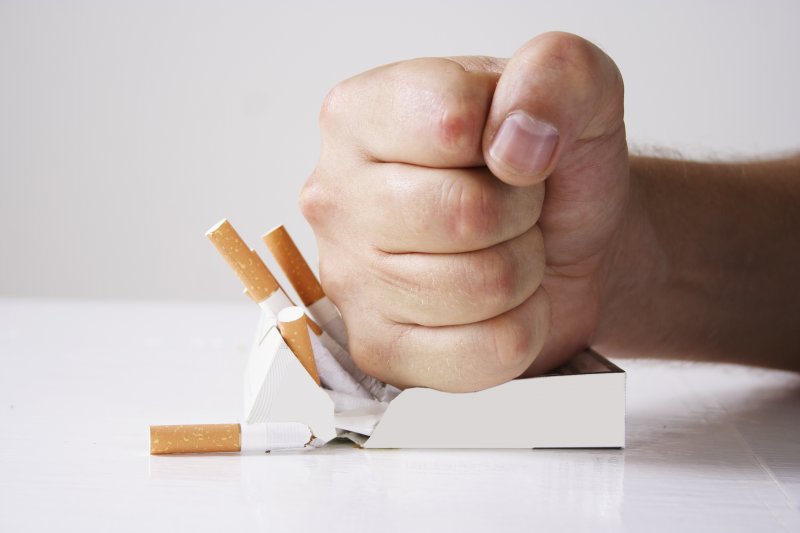
Whenever you have a tooth removed for one reason or another, a blood clot forms over the removal site as a way for your mouth to heal. While this clot should stay in place, there is always the slight chance that this clot can become dislodged. When this happens, you experience a painful complication known as “dry socket” which requires attention from your dentist. Fortunately, there are ways to keep this from happening. If you are about to have a wisdom tooth extraction, be sure to use these tips.
Don’t Use Straws
When you use a straw, your mouth pretty much acts as a vacuum. While this is great for sucking in your favorite beverages, it can also cause clots to dislodge from your wisdom tooth extraction site, therefore causing you to develop dry socket. It is a good idea to avoid using straws for at least a week after your extraction.
Don’t Use Tobacco Products
People who smoke or use another type of tobacco product are much more likely to develop dry socket after a procedure. There are many reasons why this is the case. First of all, when you quickly inhale smoke, you can dislodge your blood clot. Chemicals that are present in tobacco products are also known to prevent the healing process from going smoothly. Ultimately, you could experience an infection.
If you smoke, you should reduce your tobacco intake for a couple weeks leading up to the surgery. If you plan on resuming smoking after your extraction, ask your dentist when you are allowed to start back up again. You certainly don’t want to be dealing with dry socket!
Eat Soft Foods
For the first couple of days after your procedure, only eat foods like applesauce, yogurt, and mashed potatoes. Stay away from crunchy and hard foods like nuts, seeds, and chips. After a couple of days, you can attempt to eat heartier foods, but be sure to take it easy.
Ask About Interactions with Medications
It is important that you let your dentist know if you take any medications or have any health conditions. For instance, some studies show that there may be a link between dry socket and oral contraceptives. Other medications can keep blood clots from forming. Ultimately, by telling your dentist about what you are taking, they will be able to make more informed decisions about your procedure.
Keep It Clean
In order to prevent dry socket, it is important that you are maintaining excellent oral hygiene. Germs and infection can break down blood clots. Ask your dentist about how you should brush your teeth and rinse your mouth.
Dry socket is no fun, but you can lower your risks of developing it. By taking the steps listed above and following the instructions of your dentist, recovery will be a breeze!
About the Author
Dr. Frank S. Fratto is an experienced dentist who has been working in the field for 35 years. He earned his Doctor of Dental Surgery from the University of Southern California and has continued to pursue advanced courses in specialty services, such as dental implant placement and laser dentistry. He has taken over 850 hours of continuing education and is currently a member of the American Dental Association, California Dental Association, and Central Coast Dental Society. For more information on wisdom tooth extractions or to schedule an appointment at his office in Cambria, visit his website or call (805) 927-4811.


